Judicial Reviews and Appeals in Canadian Immigration
A&M Canadian Immigration Law Corporation
Judicial Reviews and Appeals in Canadian Immigration
Landmark cases like Baker
v. Canada (1999) and Canada (Minister of Citizenship and Immigration) v.
Vavilov (2019) established key principles of fairness and reasonableness in
immigration decision-making.
Introduction
Canada’s immigration system
involves complex decisions by visa officers, immigration tribunals, and
government officials. When an application is refused – whether it’s for a study
permit, work visa, permanent residence, or a refugee claim – applicants often
ask: What are my options to challenge this decision?
In Canadian immigration law,
there are two primary ways to contest a negative decision: appeals and judicial
reviews. While both aim to correct errors and uphold fairness, they differ
significantly in scope, process, and outcome. These mechanisms are essential
safeguards, ensuring decisions are made lawfully and justly.
This article explains the
difference between judicial reviews and appeals, when each applies, and why
landmark cases like Baker and Vavilov are central to how Canadian
courts review immigration decisions.
(Note: This article
provides general legal information for international students, workers,
visitors, and permanent residents. Always seek professional legal advice for
your individual case.)
Appeals in Immigration
Cases
What is an appeal?
An appeal allows
applicants to ask a higher tribunal to reconsider a decision on its merits.
Unlike judicial review, appeals may involve new evidence, testimony, and
humanitarian considerations. However, appeals are only available if expressly
granted by law under the Immigration and Refugee Protection Act (IRPA).
Who can appeal?
Appeal rights are limited to
specific cases:
- Family sponsorship refusals: Canadian citizens or permanent residents can
appeal a refused spousal or dependent sponsorship to the Immigration
Appeal Division (IAD).
- Removal orders: Permanent residents and certain foreign nationals can appeal
removal orders issued for reasons like misrepresentation or residency
breaches.
- Loss of permanent resident status: Those found to have failed the residency
obligation may appeal to the IAD.
- Refugee decisions: Many refused refugee claimants can appeal to
the Refugee Appeal Division (RAD).
But not all decisions are
appealable. For example, visitor visa or study permit refusals have no
appeal rights【IRCC】. In such cases, applicants may
either reapply or pursue judicial review.
Process and timelines
- IAD appeals: Notice must be filed within 30 days of receiving the
refusal or removal order (60 days for overseas residency cases).
- RAD appeals: Claimants have 15 days to file and 30 days to
submit supporting documents after receiving written reasons.
At the hearing, appellants
can present new documents and witnesses. Importantly, the IAD may consider humanitarian
and compassionate factors, including hardship and the best interests of
children.
Outcomes
The tribunal can:
- Allow the appeal: Overturn the refusal or cancel the removal
order.
- Dismiss the appeal: Uphold the original decision.
In most cases, an appeal is
a one-time opportunity, so preparation and legal representation are
critical.
Judicial Review in
Immigration Cases
What is a judicial
review?
A judicial review (JR) is a Federal Court process that examines whether an immigration decision was
made fairly, lawfully, and reasonably. Unlike an appeal, a JR does not
reconsider the facts or allow new evidence. Instead, it reviews the decision-making
process.
As IRCC notes, judicial
reviews are time-sensitive and focus on whether the officer or tribunal
followed the law【IRCC】.
When is JR available?
Judicial review applies
when:
- No appeal right exists (e.g., temporary resident visas, work permits,
economic PR refusals).
- An appeal has been tried and failed (e.g., challenging an IAD or RAD decision).
Deadlines and leave
requirement
- Inside Canada decisions: 15 days to file.
- Outside Canada decisions: 60 days to file.
Most immigration JRs require leave (permission) from the Federal Court. A judge reviews written
arguments and decides whether the case raises an arguable issue. If leave is
granted, an oral hearing follows.
What does the court
review?
The Federal Court assesses:
- Procedural fairness: Was the applicant treated fairly? Were reasons
provided?
- Reasonableness: Was the decision rational and justified within the law?
This framework comes from
key Supreme Court cases:
- Baker v. Canada (1999): Established the duty of fairness in
immigration, especially where decisions impact human rights (e.g.,
children’s best interests).
- Vavilov (2019): Clarified that reasonableness is the default standard,
meaning decisions must be justified and coherent.
Outcomes
- Application allowed: The decision is quashed and sent back to
IRCC/IRB for reconsideration by a different officer or panel.
- Application dismissed: The refusal stands.
Note: Even if the JR
succeeds, the Federal Court rarely grants the visa directly – instead, it
orders a fair reconsideration.
Key Differences Between
Appeals and Judicial Reviews
- Availability: Appeals exist only in specific cases; JRs are broadly available.
- Decision-maker: Appeals are heard by tribunals (IAD, RAD); JRs are decided
by a Federal Court judge.
- Scope:
Appeals review the merits and may admit new evidence; JRs review the
fairness and legality only.
- Remedies: Appeals can overturn or substitute decisions; JRs usually send
cases back for reconsideration.
- Timelines: Appeals (15–60 days depending on case); JRs (15–60 days depending
on where the decision was made).
- Stay of removal: Appeals may pause removal automatically; JRs
require a separate court order.
Conclusion
Immigration refusals can be
stressful and life-altering. But Canada’s system provides review mechanisms to ensure fairness: appeals where permitted, and judicial reviews for broader
oversight.
- Appeals give you a chance to re-argue the case with new evidence.
- Judicial reviews ensure the process and reasoning meet legal
standards.
Both are essential
safeguards, grounded in procedural fairness (Baker) and reasonableness (Vavilov). Acting quickly is crucial, as deadlines are strict.
Given the complexity,
professional legal advice can make the difference between failure and success.
If you receive a refusal, don’t assume it’s the end – you may still have a
pathway to justice and a second chance at your Canadian dream.






